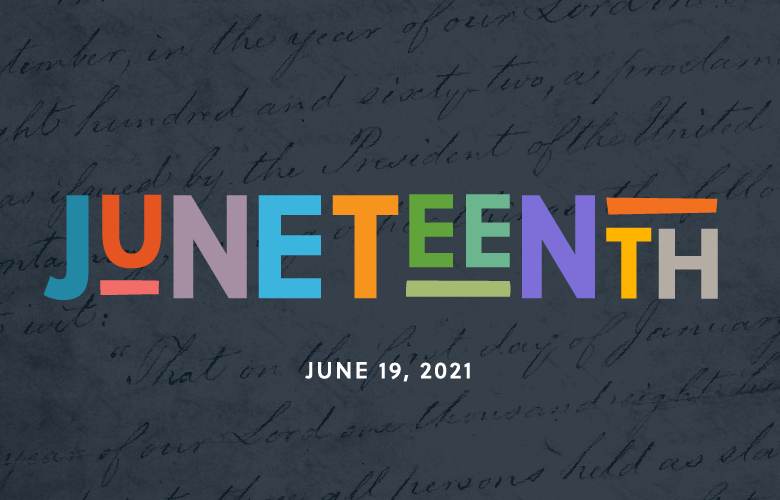
Last year, for the first time, I attended a Juneteenth celebration, which was held virtually and hosted by the National Center of Afro-American Artists (NCAAA) located here in Boston. The NCAAA is a private not-for-profit institution committed to preserving and fostering the cultural arts heritage of Black peoples worldwide. The ceremony was first a joyous celebration—through song, poetry, and spoken word—of Black resilience and accomplishment. But it was also a solemn acknowledgement of the enslavement of Black people and the legacy of the ongoing systemic racism they face to this day.
As someone raised in White privilege, I am continually relearning the true history of our nation, the one that wasn’t taught in school, and how centuries of systemic racism have negatively impacted opportunities for Black people. Juneteenth is one example of this hidden history that must be told. I am thankful that my high school-age nephews are learning the true history, along with what they can do to support change.
But what is Juneteenth?
According to the Smithsonian National Museum of African-American History and Culture, “on June 19, 1865, enslaved African Americans in Galveston, Texas, were informed of their freedom and that the Civil War had ended. This momentous occasion has been celebrated as Juneteenth—a combination of June and 19—for over 150 years.”
But Juneteenth is not only a time for celebrating. It is also a time for reflecting on the past and looking to the future.
As such, I look forward to attending Juneteenth events in my community this year and continuing to learn about and honor the experience, resilience, and accomplishments of Black Americans every day. Learning about the Black experience through personal relationships as well as community and national events informs my understanding of their multifaceted experiences and perspectives and enriches not only my personal life but also my professional one. In my daily work at EDC, I have the opportunity, both within our organization and across the United States, to engage in equity work that is designed to transform systems in order to create a more equitable nation.
As Carrie Lewis and Deirdre Jennings-Holton stated in last year’s Juneteenth blog post, “At EDC, we recognize structural racism is real with disproportionately adverse impacts on health, education, and economic outcomes. In the United States and globally, we proudly work to improve education, health, and economic opportunities, with a focus on vulnerable and underserved populations. We work to fulfill Juneteenth’s promise.”
Siobhan Bredin, senior project director in EDC’s Early Childhood Portfolio, has expertise in collaborative technical assistance, stakeholder engagement, and child care and education policies promoting equity. She is a member of EDC’s Equity, Diversity, and Inclusion Committee. |

Comments
Add new comment